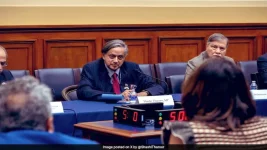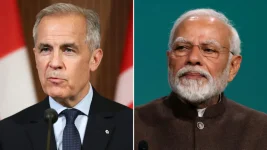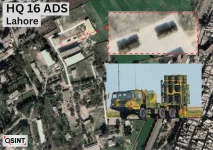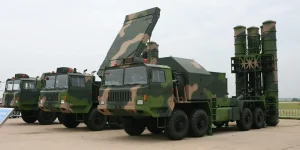- Views: 115
- Replies: 2
With its citizens deeply worried now about the country staring down the barrel of a major water crisis, a desperate Pakistan has written to India as many as four times, pleading New Delhi to reconsider its decision of suspending the Indus Waters Treaty (IWT) following the heinous April 22 Pahalgam terror attack which resulted in the death of 26 innocent civilians.
The four letters sent by Syed Ali Murtaza, Secretary of Pakistan’s Ministry of Water Resources, were addressed to the Ministry of Jal Shakti which has since then forwarded them to the Ministry of External Affairs (MEA), sources indicated. In the letters, Murtaza has urged India to reinstate the agreement.
Invoking its national security prerogative, India has made it clear that the treaty will remain in abeyance until Islamabad “credibly and irrevocably” ends its support for cross-border terrorism.
The move was endorsed by the Cabinet Committee on Security (CCS), the apex decision-making body on strategic affairs, immediately after the Pahalgam terror attack on April 22, marking the first time New Delhi has hit pause on the World Bank-brokered agreement.
As India launched Operation Sindoor, Prime Minister Narendra Modi repeatedly underlined the government’s uncompromising position that “water and blood cannot flow together” and “terror and talks cannot happen at the same time”.
Pushed on the backfoot by India’s decisive operation, Pakistan’s Prime Minister Shehbaz Sharif has been expressing Islamabad’s willingness to engage in peace talks with India to resolve ongoing disputes between the two countries.
This was after several leading Pakistani politicians made a desperate appeal to the Shehbaz Sharif government to “defuse” the “water bomb” that is hanging over the country after India suspended the IWT.
“We would die of hunger if we don’t resolve the water crisis now. The Indus Basin is our lifeline as three-fourths of our water comes from outside the country, nine out of 10 people depend on the Indus water basin for their living, as much as 90 per cent of our crops rely on this water and all our power projects and dams are built on it. This is like a water bomb hanging over us and we must defuse it,” Pakistan Senator Syed Ali Zafar said in his speech during a Senate Session, last month.
The Indus Water Treaty, which was signed in 1960, governs the sharing of the waters of six rivers — Indus, Jhelum, Chenab, Ravi, Beas, and Sutlej — between India and Pakistan.
India has charged Pakistan with violating the IWT by trampling its spirit of goodwill through thousands of terrorist attacks and by obstructing the updating of the infrastructure to ensure its safety.
“Despite this, India has shown extraordinary patience and magnanimity… Far-reaching fundamental changes have taken place not only in terms of escalating security concerns through cross-border terror attacks, but also growing requirements for producing clean energy, climate change, and demographic change,” said India’s Permanent Representative P Harish while responding to Pakistan’s campaign of disinformation during an informal meeting of the UN Security Council in New York on May 24.
New Delhi had formally asked Islamabad on several occasions in the last two years to discuss modifications of the treaty, but to no avail.
“Pakistan has continued to consistently block any changes to this infrastructure, and any modifications of the provisions, which are permissible under the treaty,” Harish said while emphasising that while the fundamental basis of the treaty laid out in its preamble is a spirit of goodwill and friendship, Pakistan has inflicted on India three wars and thousands of terror attacks.








